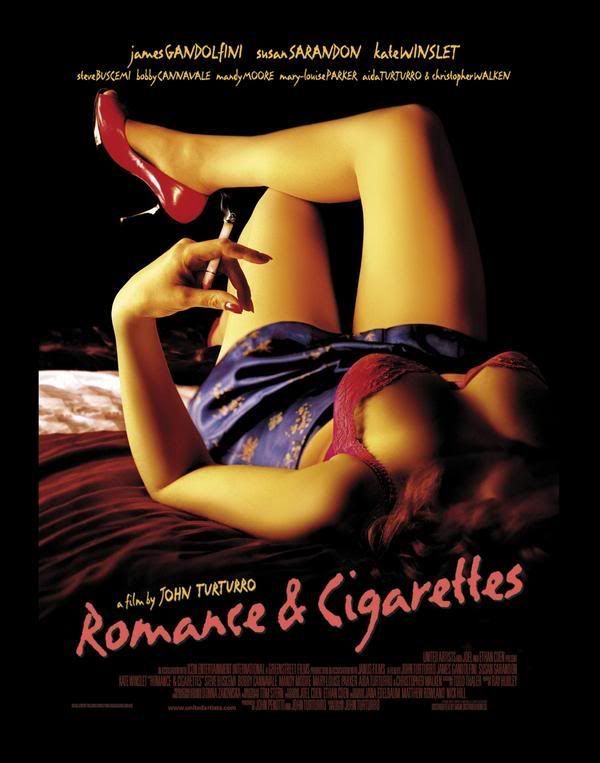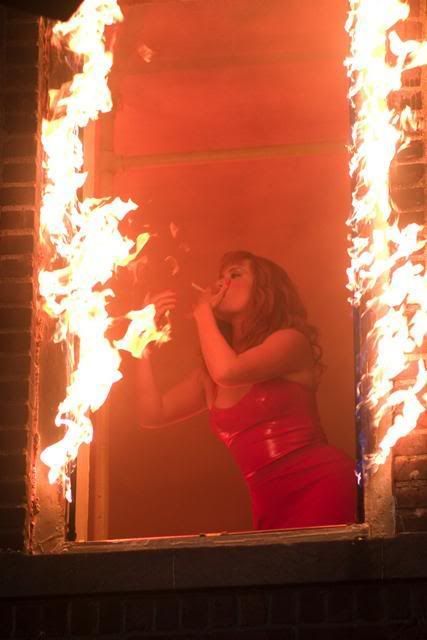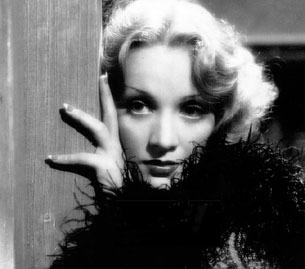I’m still wondering.

Jane (Katherine Heigl) is the perfect woman - she’s helpful, kind, never says no and she looks killer in a variety of dresses, brides maid dresses to be exact and there are twenty-seven of them hanging in her closet. Her lovely personality traits all come back to bite her in the ass when her younger spoiled super model sister, Tess (Malin Akerman), steps into the picture and gets engaged to Jane’s boss, George (Edward Burns), who just happens to be the love of Jane’s life.
Sound cliché?
Well, that’s because it is.
Nothing new exists within the world of 27 Dresses. It’s merely a culmination of several very bad female stereotypes housed in the body of one Katherine Heigl (who Cosmopolitan magazine recently called “the fun, fearless female of 2007“ Hardy har har). Jane is subservient without complaint – she honestly and vehemently wants to be the definition of the mindless housewife, complete with a “Kodak moment” worthy marriage to someone and it doesn’t really matter who. She lives, breathes, and eats weddings (and lots of wedding cake) and subjects herself to the bride’s maid torture in order to be closer to her dream – almost to the point of saying that she’s masturbating her false ideals every time she’s apart of the wedding experience.
Any sort of step she makes in the right direction towards independence is completely and almost instantaneously undermined by the fact that her character is basically an exercise in humiliation. No one is on her side - not the little sister she raised, not the boss she takes care of, not even the bride-friends she powdered and puffed at the twenty-seven weddings she organized. Jane is on her own and instead of being a fightin’ rooster, she settles upon being just another hen in the henhouse, satisfied with having her eyes pecked out by the rest of the hens.
I honestly can’t believe this film was directed and written by women (Anne Fletcher and Aline Brosh McKenna) who treat the material as if it were fun and harmless. I don’t think it would be an exaggeration to state that Fletcher and McKenna treat Jane in the same vein Lucio Fulci “handles” the women in his Giallo slasher films. The only difference being Fulci has the courtesy to actually kill the women he tortures instead of banishing them to marital movie bliss. What’s the deal, Fletcher and McKenna?
I also feel that Katherine Heigl has the potential to actually be the “fun and fearless female of the year”, but that day hasn’t arrived yet. She’s a capable comedienne, pretty, and ambitious. And I adored her after she said this about Knocked Up:
“…A little sexist. It paints the women as shrews, as humorless and uptight, and it paints the men as lovable, goofy, fun-loving guys. It exaggerated the characters, and I had a hard time with it, on some days. I'm playing such a bitch; why is she being such a killjoy? Why is this how you're portraying women? Ninety-eight percent of the time it was an amazing experience, but it was hard for me to love the movie.”
I don’t like Knocked Up either, but anyone with half a brain can tell that 27 Dresses is by far the more offensive film.
Trailers attached to 27 Dresses:
- The Eye
- Fool’s Gold
- Made of Honor
- Definitely, Maybe
- What Happens in Vegas…
- Jumper














